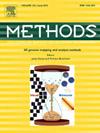OmniClust: A versatile clustering toolkit for single-cell and spatial transcriptomics data
IF 4.3
3区 生物学
Q1 BIOCHEMICAL RESEARCH METHODS
引用次数: 0
Abstract
In recent years, RNA transcriptome sequencing technology has been continuously evolving, ranging from single-cell transcriptomics to spatial transcriptomics. Although these technologies are all based on RNA sequencing, each sequencing technology has its own unique characteristics, and there is an urgent need to develop an algorithmic toolkit that integrates both sequencing techniques. To address this, we have developed OmniClust, a toolkit based on single-cell RNA sequencing (scRNA-seq) and spatial transcriptomics data. OmniClust employs deep learning algorithms for feature learning and clustering of spatial transcriptomics data, while utilizing machine learning algorithms for clustering scRNA-seq data. OmniClust was tested on 12 spatial transcriptomics benchmark datasets, demonstrating high clustering accuracy across multiple clustering evaluation metrics. It was also evaluated on four scRNA-seq benchmark datasets, achieving high clustering accuracy based on various clustering evaluation metrics. Furthermore, we applied OmniClust to downstream analyses of spatial transcriptomics and single-cell RNA breast cancer data, showcasing its potential to uncover and interpret the biological significance of cancer transcriptome data. In summary, OmniClust is a clustering tool designed for both single-cell transcriptomics and spatial transcriptomics data, demonstrating outstanding performance.
OmniClust:用于单细胞和空间转录组学数据的多功能聚类工具包。
近年来,RNA转录组测序技术不断发展,从单细胞转录组学到空间转录组学。虽然这些技术都是基于RNA测序,但每种测序技术都有其独特的特点,迫切需要开发一种集成这两种测序技术的算法工具包。为了解决这个问题,我们开发了OmniClust,这是一个基于单细胞RNA测序(scRNA-seq)和空间转录组学数据的工具包。OmniClust采用深度学习算法对空间转录组学数据进行特征学习和聚类,同时利用机器学习算法对scRNA-seq数据进行聚类。OmniClust在12个空间转录组学基准数据集上进行了测试,显示出跨多个聚类评估指标的高聚类准确性。并在4个scRNA-seq基准数据集上进行了评估,基于各种聚类评估指标实现了较高的聚类精度。此外,我们将OmniClust应用于空间转录组学和单细胞RNA乳腺癌数据的下游分析,展示了其揭示和解释癌症转录组学数据的生物学意义的潜力。综上所述,OmniClust是专为单细胞转录组学和空间转录组学数据设计的聚类工具,表现出出色的性能。
本文章由计算机程序翻译,如有差异,请以英文原文为准。
求助全文
约1分钟内获得全文
求助全文
来源期刊

Methods
生物-生化研究方法
CiteScore
9.80
自引率
2.10%
发文量
222
审稿时长
11.3 weeks
期刊介绍:
Methods focuses on rapidly developing techniques in the experimental biological and medical sciences.
Each topical issue, organized by a guest editor who is an expert in the area covered, consists solely of invited quality articles by specialist authors, many of them reviews. Issues are devoted to specific technical approaches with emphasis on clear detailed descriptions of protocols that allow them to be reproduced easily. The background information provided enables researchers to understand the principles underlying the methods; other helpful sections include comparisons of alternative methods giving the advantages and disadvantages of particular methods, guidance on avoiding potential pitfalls, and suggestions for troubleshooting.
 求助内容:
求助内容: 应助结果提醒方式:
应助结果提醒方式:


